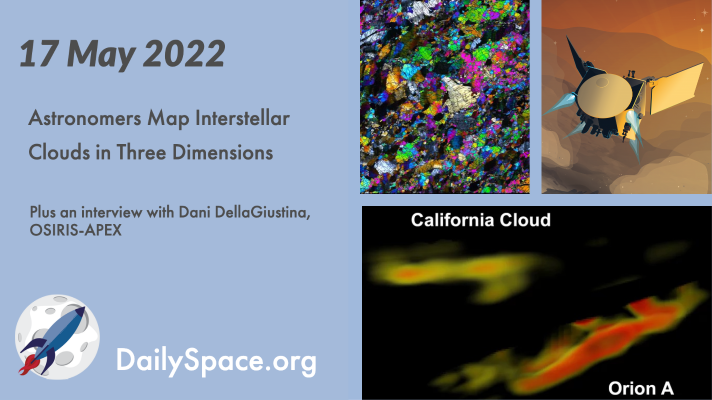
May 18, 2022 | Astrobiology, Bennu Mapper, Daily Space, Earth, Galaxies, Guest Interview, Nebulae, Rockets, Space China, SpaceX, Starlink
A team of scientists combined stellar locations from the Gaia mission with dust and cloud maps from the WISE and 2MASS catalogs to create amazing three-dimensional images of the California Cloud and Orion A Cloud. Plus, rocket launches, the origin of carbon, and an interview with Dani DellaGiustina, principal investigator for the OSIRIS-APEX mission.
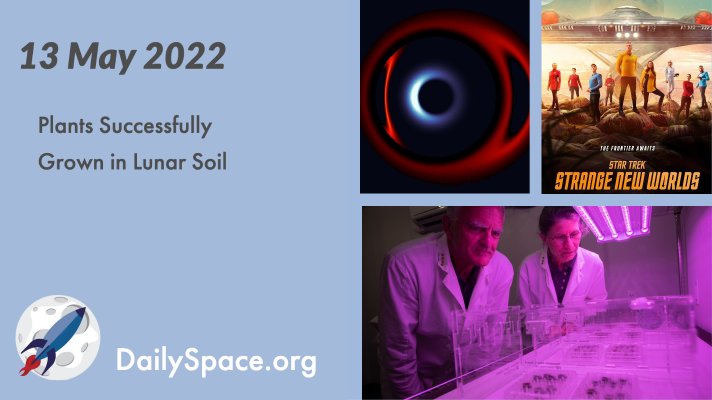
May 16, 2022 | Astrobiology, Daily Space, Earth, Exoplanets, Kepler, Mars, Moon, Review, Supermassive Black Holes, Supernovae, Zhurong
Using a mere twelve grams of lunar soil returned by the Apollo missions, scientists have successfully grown plants in the lab. With a wealth of genetic data on hand, they can now analyze the changes to the plants and the soil. Plus, stellar cannibalism, a black hole merger, brown dwarfs, water on Mars, and a review of “Star Trek: Strange New Worlds”.
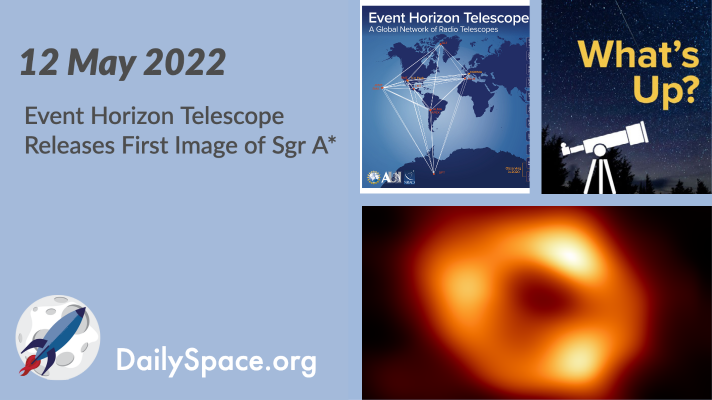
May 13, 2022 | Daily Space, Milky Way, Observatories, Sky Watching, Supermassive Black Holes
In an early morning announcement, the Event Horizon Telescope collaboration finally revealed their first image of Sgr A*, the black hole at the center of the Milky Way galaxy. We have a special episode entirely about this amazing new image and the science behind it. And this week’s What’s Up is a total lunar eclipse.
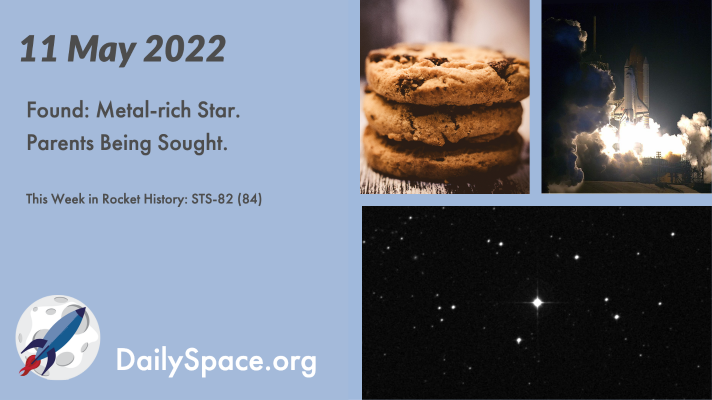
May 12, 2022 | Daily Space, Earth, JWST, Mars, Physics, Random Space Fact, Science, Space History, Spacecraft, Stars, The Sun
A ninth-magnitude star in our neighborhood of the Milky Way has been found to contain 65 different elements, including large proportions of heavier elements like gold. This star required either a supernova or a neutron star merger to form. Plus, another solar flare, a strong marsquake, cosmic rays, cookies, and this week in rocket history, we look back at STS-84.
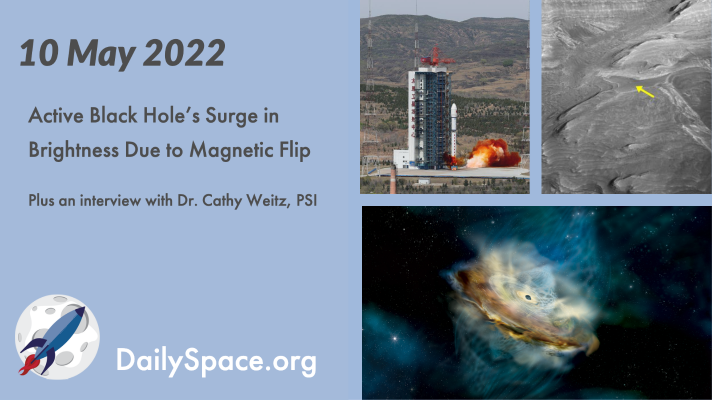
May 11, 2022 | Active Galaxies, Asteroids, Citizen Science, Daily Space, Galaxies, Guest Interview, Mars, Perseverance, Rockets, Space China, Spacecraft, SpaceX, Starlink, Supermassive Black Holes
A luminous black hole already classified as an active galactic nucleus brightened suddenly in recent ground and space observations, and the cause may be due to a sudden flip in the magnetic poles. Plus, community science, rockets, Ingenuity, and an interview with Dr. Cathy Weitz from Planetary Science Institute.
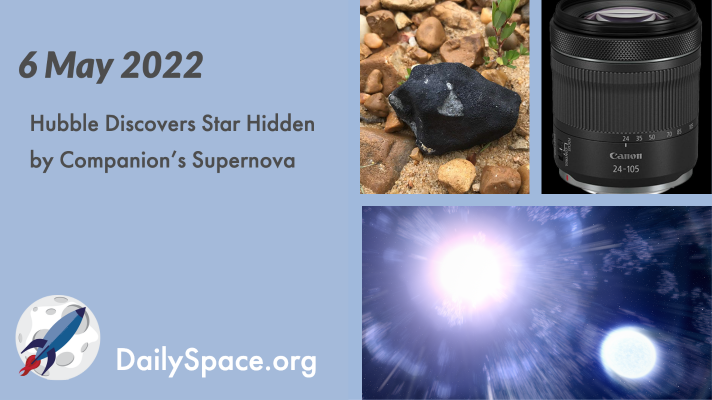
May 9, 2022 | Asteroids, Crewed Space, Daily Space, Exoplanets, Moon, Review, SpaceX, Stars, Supernovae, Titan
Data from the Hubble Space Telescope has determined that the newly discovered companion of a star that went supernova had its outer hydrogen layer siphoned off before the explosion. The results support the theory that massive stars generally form and evolve as binary systems. Plus, rocks from space, Crew-4 comes home, searching for life beyond Earth, and another Canon lens review.








 We record most shows live, on Twitch. Follow us today to get alerts when we go live.
We record most shows live, on Twitch. Follow us today to get alerts when we go live.